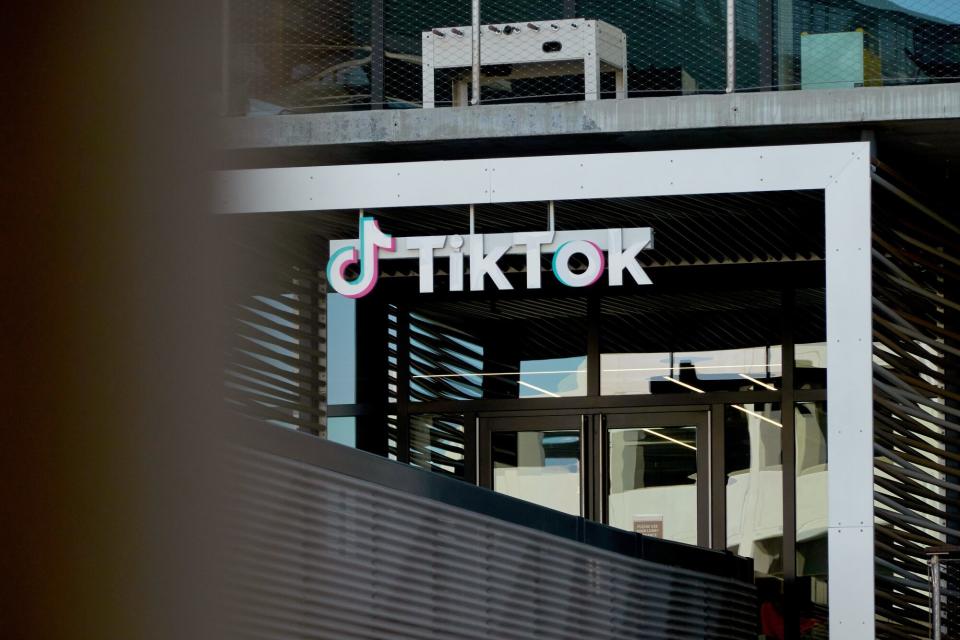TikTok Argues US Disregarded National Security Plans

(Bloomberg) -- TikTok and its China-based parent company ByteDance Ltd. argued that the US government could have enacted less restrictive alternatives to banning the app to address national security concerns.
Most Read from Bloomberg
Nvidia Rout Takes Breather as Traders Scour Charts for Support
YouTuber Dr Disrespect Was Allegedly Kicked Off Twitch for Messaging Minor
BuzzFeed Struggles to Sell Owner of Hit YouTube Show ‘Hot Ones’
Jain Global Raises $5.3 Billion, Secures Cash From Abu Dhabi
Israel Court Calls Ultra-Orthodox Men Into Army as Crisis Brews
In a court filing Thursday, the company said it had negotiated a 90-page national security agreement with the federal government to offer “multi-layered safeguards and enforcement mechanisms,” but Congress disregarded that groundwork when enacting the TikTok ban earlier this year.
TikTok and the company’s content creators brought legal challenges last month after President Joe Biden signed a provision into law that will ban the app if ByteDance doesn’t divest it by Jan. 19. US lawmakers rushed to pass the ban following a number of classified briefings around security risks that China could access US user information and use TikTok to influence citizens.
TikTok has said that there is no evidence to validate concerns that the app poses a national security threat.
The Justice Department said in a statement Thursday that the legislation “addresses critical national security concerns in a manner that is consistent with the First Amendment and other constitutional limitations.” The department said it would defend the legislation in court.
“Alongside others in our intelligence community and in Congress, the Justice Department has consistently warned about the threat of autocratic nations that can weaponize technology — such as the apps and software that run on our phones — to use against us,” the department said. “This threat is compounded when those autocratic nations require companies under their control to turn over sensitive data to the government in secret.”
In its brief, TikTok said it spent more than a year negotiating an agreement with the US that would have made any risks to national security low. For example, if the government determined that the company violated the agreement, TikTok could face significant financial penalties and would be forced to shut down in the US.
But the US government abruptly pulled out of those discussions and delivered a message in early 2023 that the social media platform would be forced to divest its US business, according to the company.
TikTok’s attempts to address concerns by working with Oracle Corp. to protect user information didn’t placate lawmakers. TikTok’s algorithm, source code and back-end support are still in China, according to Senate Intelligence Committee Chairman Mark Warner, who supported a divestment.
The company also laid out its reasons for bringing the lawsuit against Attorney General Merrick Garland. TikTok argued that the ban will infringe on free speech rights and hurt those who earn a living from creating content on the platform.
“The Act is unprecedented,” TikTok said in the court filing. “Never before has Congress expressly singled out and shut down a specific speech forum. Never before has Congress silenced so much speech in a single act.”
In the brief, TikTok said that it is not “possible technologically, commercially or legally” for ByteDance to divest the video-sharing platform.
“Even if the divestiture were feasible, TikTok in the United States would still be reduced to a shell of its former self, stripped of the innovative and expressive technology that tailors content to each user,” the company said.
Justice Department attorneys have until July 26 to respond to TikTok’s arguments. The DC Circuit panel earlier set an expedited schedule after TikTok asked that the case be decided by Dec. 6 so there would be enough time to request an emergency review by the Supreme Court if necessary.
--With assistance from Chris Strohm.
(Updates with DoJ comment starting in the fifth paragraph.)
Most Read from Bloomberg Businessweek
How Jeff Yass Became One of the Most Influential Billionaires in the 2024 Election
Why BYD’s Wang Chuanfu Could Be China’s Version of Henry Ford
Independence Without Accountability: The Fed’s Great Inflation Fail
©2024 Bloomberg L.P.

 Yahoo Finance
Yahoo Finance 